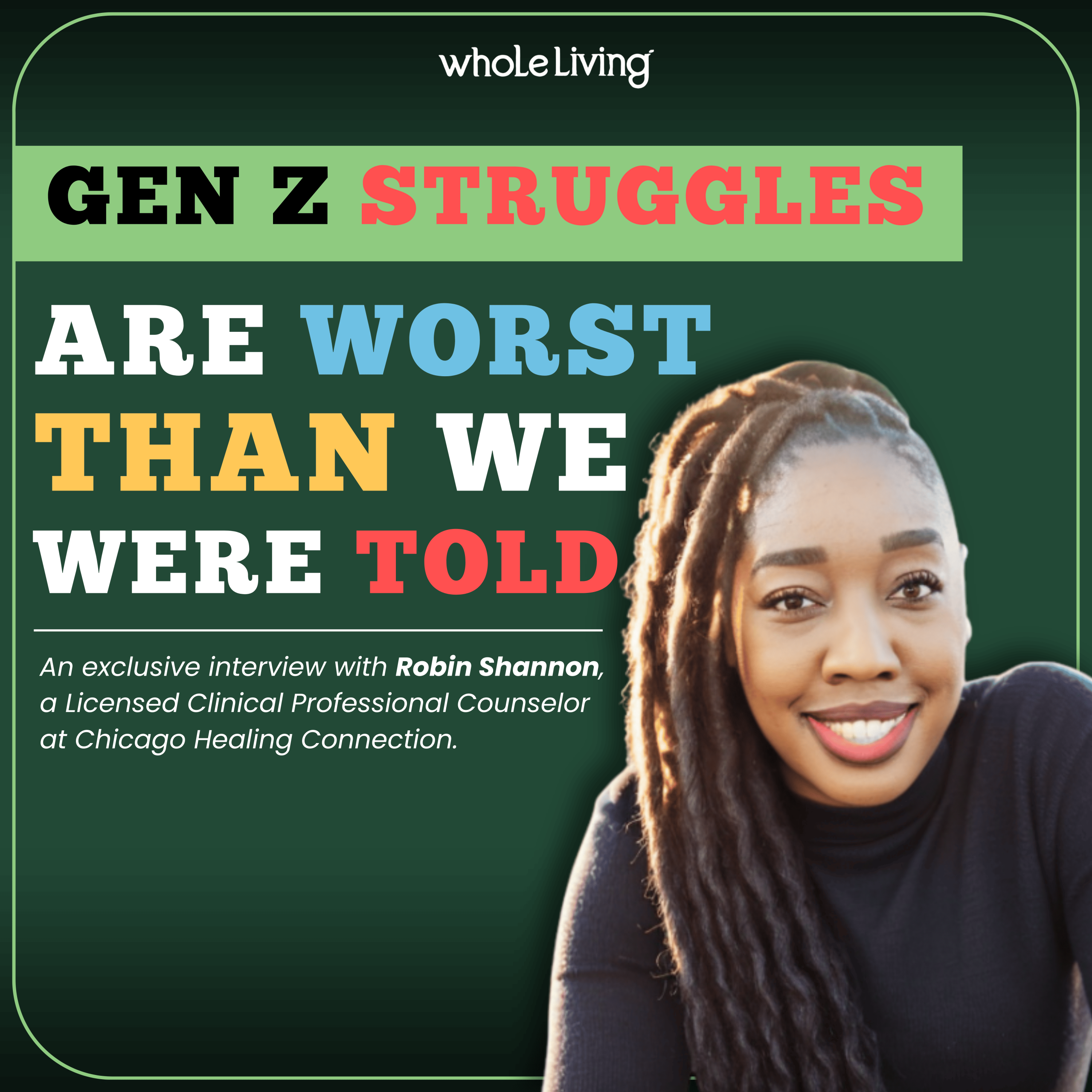In This Article
Can I share a secret about emotion and intelligence? They are not at odds. In fact, when they work together, they become powerful tools for inner balance and growth. This harmony is what we call emotional intelligence, and it's something you already have within you. As you learn to tap into it with kindness and curiosity, you’ll discover how emotional intelligence can support your mental health, strengthen your personal relationships, and guide your everyday life with grace.
You don’t need to have it all figured out. You just need to begin noticing your own emotions and how they shape your choices. When you understand how emotional intelligence affects your well being, you start to move with more ease and purpose. This isn't about fixing anything. It’s about gently coming home to yourself.
What Is Emotional Intelligence, Really?

Emotional intelligence, often called emotional intelligence EQ or simply EQ, is your ability to recognize, understand, and manage your own emotions while also tuning into the feelings of others. It’s not about being overly emotional. It’s about using your emotional skills to navigate life more mindfully and compassionately. Unlike cognitive intelligence, which focuses on logic and reasoning, EQ is about emotional awareness, emotional perception, and emotional understanding.
Think of EQ as the heart’s wisdom. It’s the gentle strength that allows you to respond instead of react. People with strong emotional intelligence don’t ignore their emotions, they listen to them and use them as guidance. They know that emotions play a role in every conversation, every decision, and every relationship. And they use that awareness to create better relationships and deeper connections.
Understanding the term emotional intelligence helps you see that it’s not something you’re born with or without. It’s something you can grow. With emotional intelligence training and reflection, you can build your emotional competencies and expand your emotional abilities over time. This is a practice, not a performance.
Why Emotional Intelligence Matters in Whole Living

Emotional intelligence matters because it touches every part of your well being. When you’re emotionally intelligent, you become more aware of how you feel, how others feel, and how to move through emotions with clarity and compassion. You start to understand emotions not as distractions but as tools that help you live more fully. This is what makes emotional intelligence essential in your journey toward whole living.
Your well being doesn’t only depend on physical health. It also relies on emotional awareness and your ability to manage emotions in healthy ways. When you’re able to navigate your emotional world, you’re more likely to stay grounded, make thoughtful choices, and keep a positive outlook, even in tough moments. That’s why emotional intelligence helps you live with intention instead of autopilot.
Whole living is about embracing your full self — body, mind, and spirit. Building emotional intelligence supports this by strengthening your self awareness and helping you stay present. It gives you the ability to check in with your feelings, honor them, and respond in ways that align with your values. You stop just surviving and begin thriving.
READ ALSO: Mental Health Days: When to Take One & Why It Matters
The Five Pillars of Emotional Intelligence
Here are the five key skills that form the foundation of emotional intelligence EQ: self awareness, self management, social awareness, relationship management, and emotional regulation. These pillars aren’t just abstract ideas. They’re deeply practical emotional intelligence skills that guide your daily life. Each one invites you to grow gently into a more emotionally intelligent person.
- Self Awareness: This is your ability to notice your own emotions and understand where they’re coming from. When you’re self aware, you pause before reacting and recognize what you truly need. It helps you gain insight into how your emotions influence your thoughts and behavior. With better self awareness, you can live more intentionally. You begin to lead your emotions, not follow them.
- Self Management: This doesn’t mean hiding emotions. It means choosing how you express them. When you manage emotions well, you don’t let frustration or stress take over. You breathe, you reflect, and you respond with calm. This emotional skill brings more balance into your everyday life.
- Social Awareness: This is your ability to notice and understand other people’s feelings. You pick up on facial expressions, tone of voice, and emotional cues. It allows you to move through the world with more empathy and kindness. Social awareness strengthens your personal relationships and builds trust. It’s a key ingredient for deeper connection.
- Relationship Management: This is where emotional intelligence shines in your connections with others. It’s about communication, conflict management, and collaboration. When you manage relationships well, you listen more, judge less, and create space for mutual respect. Stronger relationships grow when emotional intelligence is present. You become someone others feel safe around.
- Emotional Regulation: This pillar helps you stay steady in emotional storms. It’s the skill of noticing intense feelings without being controlled by them. Emotional regulation lets you care for yourself when things feel heavy. You learn how to manage stress in ways that nurture rather than deplete. It’s a form of emotional resilience.
Understanding Emotions: Yours and Theirs

Your emotions are like waves — sometimes gentle, sometimes strong. Being emotionally intelligent means learning how to surf those waves, not avoid them. Understanding emotions starts with tuning into your own emotions and making space for them. It’s also about learning to perceive and respond to other people’s feelings with care. This is where emotional perception becomes a powerful guide.
When you begin to understand emotions, you create space for more compassion. You notice when you're feeling overwhelmed, and instead of pushing through, you pause and listen. You recognize the emotions behind someone else’s words, and it changes how you respond. This emotional awareness deepens connection and fosters trust. It invites more ease into your relationships.
Perceiving emotions in others also helps with social awareness. Whether it's noticing a smile or sensing tension in a conversation, you're picking up on valuable signals. These cues help you adjust, support, and connect more effectively. You’re no longer just reacting. You’re responding with intention and empathy.
How to Build Emotional Intelligence in Everyday Life

Building emotional intelligence is not a race. It’s a daily practice. You begin by creating small moments of pause to check in with your feelings. Journaling, meditation, and breathwork are helpful tools for developing better self awareness. Each moment you reflect is a step toward stronger emotional intelligence skills.
Notice how you speak to yourself when you're feeling something hard. Are you kind, or are you critical? Replacing judgment with curiosity is a simple way to build emotional competencies. This shift supports emotional development and brings more peace to your mental health. It teaches you how to honor your emotions, not suppress them.
Try setting daily intentions that support emotional skills. These could be as simple as “Today I will pause before reacting,” or “I will name what I feel before I act.” This creates emotional awareness throughout your day. With time, these intentions become natural habits. And your emotional intelligence EQ grows in quiet, meaningful ways.
Building emotional intelligence isn’t about being perfect. It’s about being honest. Honest about how you feel, how others might feel, and how you want to show up. It’s this honesty that brings healing. And it’s what allows you to live with more clarity, confidence, and care.
READ ALSO: Think Positive Be Positive: The Mood Shift You Need
Managing Emotions Without Overwhelm

Managing emotions doesn’t mean bottling them up or pretending everything’s fine. It means creating space to feel without being flooded. One of the most powerful emotional skills you can learn is how to manage stress and soothe yourself gently. This is where emotional regulation becomes essential.
When you notice your nervous system is activated, pause. Take three deep breaths. This simple act signals to your body that it’s safe. It helps you manage emotions without letting them drive your choices. It’s a practice of kindness toward yourself.
Negative emotions are part of the human experience. Sadness, frustration, fear — they all have something to teach. Emotionally intelligent people don’t fear these feelings. They welcome them with curiosity, allowing each one to guide them to deeper self awareness. You begin to ask, “What is this emotion here to show me?”
There are also practical tools to manage stress and emotional overwhelm. Gentle movement, grounding exercises, and time in nature all support emotional well being. They bring you back to center. And they remind you that managing emotions is not about control — it’s about care.
The Role of Emotional Intelligence at Work

Emotional intelligence plays a quiet but powerful role in your professional life. When you have high emotional intelligence, you're more likely to respond thoughtfully under pressure, manage stress with grace, and adapt to change with resilience. These emotional skills lead to better job performance and greater job satisfaction, especially in fast-paced or people-centered roles. Instead of reacting impulsively, you begin to manage emotions with intention. This helps you maintain clarity and composure, even in challenging situations.
Research suggests that employees with strong emotional intelligence EQ tend to navigate workplace dynamics with ease. According to the Harvard Business Review, emotional intelligence is often a better predictor of leadership success than technical skill or cognitive ability. Leaders who are emotionally intelligent create environments of trust, safety, and collaboration. They know how to tune into other people’s feelings, express themselves clearly, and make decisions with empathy. These are emotional competencies that support both productivity and well being.
When teams are led by someone with strong emotional intelligence, they experience stronger relationships and healthier communication. Conflict is addressed, not avoided. Feedback is given with respect. And stress is managed in a way that honors everyone’s mental health. In this kind of setting, people feel valued. They are more engaged, more creative, and more committed to their work.
Emotional Intelligence in Relationships

Your relationships reflect your emotional intelligence. When you practice relationship management, you bring care and clarity into how you connect with others. You become more aware of your own emotions and how they influence your reactions. This awareness helps you respond with empathy, not assumption. It also helps you build stronger relationships rooted in honesty and trust.
In close relationships, emotional awareness becomes essential. Whether you're speaking with a partner, friend, or family member, being emotionally intelligent means truly listening and staying present. You recognize facial expressions, emotional tone, and unspoken needs. These moments of understanding deepen your connection and create space for safety. The more emotionally intelligent you are, the more connected and supported your relationships feel.
Think of an emotionally intelligent person in your life. Maybe they don’t always have the perfect words, but they make you feel seen and heard. They manage their emotions without shutting down or exploding. They’re aware of how their words affect others. That kind of emotional understanding and regulation is what nurtures closeness. It’s not about avoiding conflict but handling it with care and intention.
READ ALSO: Blunted Emotion and the Path Back to Feeling Fully
Measuring Your EQ Gently

Emotional intelligence can be measured, but it’s not something to label or judge. Tools like emotional intelligence tests, self report tests, and ability based measures offer a way to reflect on your strengths and areas for growth. These are not about scoring high or low. They’re simply invitations to better understand how you respond to yourself and others. They help you become more self aware and emotionally skilled.
One approach used by organizations like Multi Health Systems focuses on measuring emotional intelligence across different areas. These might include self awareness, social awareness, relationship management, and emotion regulation. By looking at these areas, you can get a clearer picture of how your emotional intelligence EQ shows up in everyday life. It also shows you where you can gently build more confidence and care.
Self report measures are often the most accessible. They allow you to answer questions about how you typically respond in emotional situations. The goal is not perfection, but growth. Measuring emotional intelligence this way encourages reflection without pressure. It’s about building emotional skills in a way that feels empowering, not overwhelming.
Whole Living & Emotional Intelligence: The Gentle Link

Whole living is about honoring all parts of yourself—body, mind, heart, and spirit. Emotional intelligence helps bring this balance to life by guiding you in how to feel, reflect, and respond with purpose. When you understand your emotions, you make space for joy, curiosity, and healing. You’re no longer pushing through life. You’re living it with awareness and care.
Emotional intelligence helps you create a life that feels grounded and intentional. It supports your mental health, strengthens your personal life, and encourages meaningful relationships. As you build emotional intelligence, you naturally begin to manage emotions with more grace. You also develop a more positive outlook, even when life feels uncertain. These emotional skills are the foundation for true well being.
Personal growth becomes more gentle and sustainable when led by emotional awareness. You don’t need to change everything at once. Just by becoming more emotionally intelligent, you begin to experience shifts. You start responding instead of reacting. And that subtle shift leads to powerful change.
Key Takeaway: Your Emotions Are Not a Disruption
Your emotions are not something to control or silence. They are here to guide you toward deeper understanding, greater clarity, and more compassion. When you gain insight into your emotional patterns and learn how to express your feelings with care, you begin to unlock your emotional intelligence. This awareness helps you cultivate social intelligence, manage stress with intention, and nurture your overall well being.
You are already capable of becoming more emotionally intelligent. Through practice, patience, and presence, your emotional skills will grow. You’ll become more connected to yourself and more understanding of other people’s feelings. You’ll strengthen your relationships, support your mental health, and move through daily life with calm and confidence.
Let your emotions speak. Let them teach you. They are not here to derail you—they’re here to support your personal growth. With each step you take toward emotional awareness, you are walking the path of whole living. And you are not alone on that path.






















